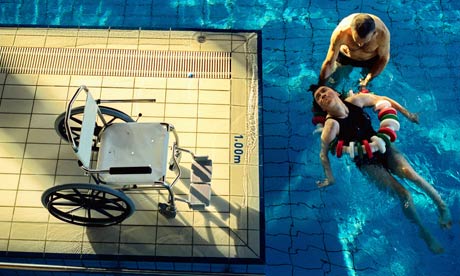We lost someone important to us this weekend. My mum rang me, crying from a hotel room, after Megan had said goodbye, and what a shame it was. She didn’t want to go. We didn’t want her to go either.
Megan was my younger brother’s carer. His autism and epilepsy means he needs round-the-clock assistance. Megan had split up with her boyfriend, and the minimum wage she was being paid was not enough for her to live alone – so she has to go away, to live with her parents. My brother will not understand this: he will just see that she is gone, and miss her. But we understand it. Having witnessed the work of a succession of carers while I was growing up, I not only noticed what an incredible, noble thing it is to devote your time to looking after someone more vulnerable than you, but also how little society gives a toss about it.
Of course, the government is pretending it also cares. Last week the health secretary said that workers who looked after elderly parents should be allowed to choose their own working hours. (Why he seems to exclude those who look after disabled people or young children from these proposals, I fail to understand.) The journalist Jackie Ashley spoke of how difficult it was to juggle work with caring responsibilities after her husband, Andrew Marr, had a stroke, and together with the Institute for Public Policy Research, she is recommending the adoption of the German Familienpflegezeit (family caring time): a scheme that enables those with dependants in need of care to reduce their working hours to 15 a week. Ashley described the UK’s 3 million unpaid carers as an “unregarded, forgotten army”. I would include those who elect to do it professionally in that contingent, too.
Caring is often thankless work. You devote your life to someone else, give them comfort, reassurance and company. You cook their pork chops and clean up their shit and hold their hand when they cry. Like Megan, you make small gestures that, to the recipient, make all the difference. You make sure they have music. You bake their special bread. You set up FaceTime so they can talk to their family. You take them swimming. You are a friend to someone who perhaps doesn’t have many friends. In return, whether you’re doing it as a job or doing it because you must, you get less than a living wage: £6.19 an hour, or £60 a week carer’s allowance.
These people are the best kind of people. There is no training course in the world that can truly prepare a carer: it’s something that you either have or you don’t. We were extremely lucky to live in a rural area where the resources were relatively unstretched, and there were plenty of kind-hearted people keen to help out when the state couldn’t (those who would take the odd bit of cash in hand, too). And we knew how to play the system. The social worker said to my mum: “Ring us on your worst day.” It’s when you sob down the phone that they have to send the people. This was pre-recession, before the cuts, and even then charities had to patch up the cracks. Thanks to one charity, my brother went for weekends away to a retired couple called Roberta and Gwynfor.
It is difficult to express in writing what a difference all these people have made to our lives. I feel as though each and every one has saved me in some small way. They saved my mother too. But even this pales into insignificance when I consider the impact they’ve had on my brother, who, despite his limited vocabulary, can remember and name practically every single one of them. He remembers Ian, Jackie from across the road, John, Hannah and Kate, Alice and Vanessa. He remembers Sharon, who was blonde and beautiful, and whom we think he rather liked, because he used to go up to similar-looking women in supermarkets and cuddle them. He remembers Dan, Tom and Clive, and probably 50 other people whose names I have forgotten. We have photographs of some of them, and his face lights up when he sees them.
When I was a teenager, one of my brother’s carers asked if looking after disabled people might be something I would consider when I was older. I was dismissive. I felt I’d done enough of that already, but also, having never had it, I wanted to make money. The people who are truly gifted at this kind of work are never in it for the cash, but they have to live their lives and pay their bills as well. Because she couldn’t, my brother’s friend is gone. She’s now a photograph in an album full of photographs, and I am furious.







